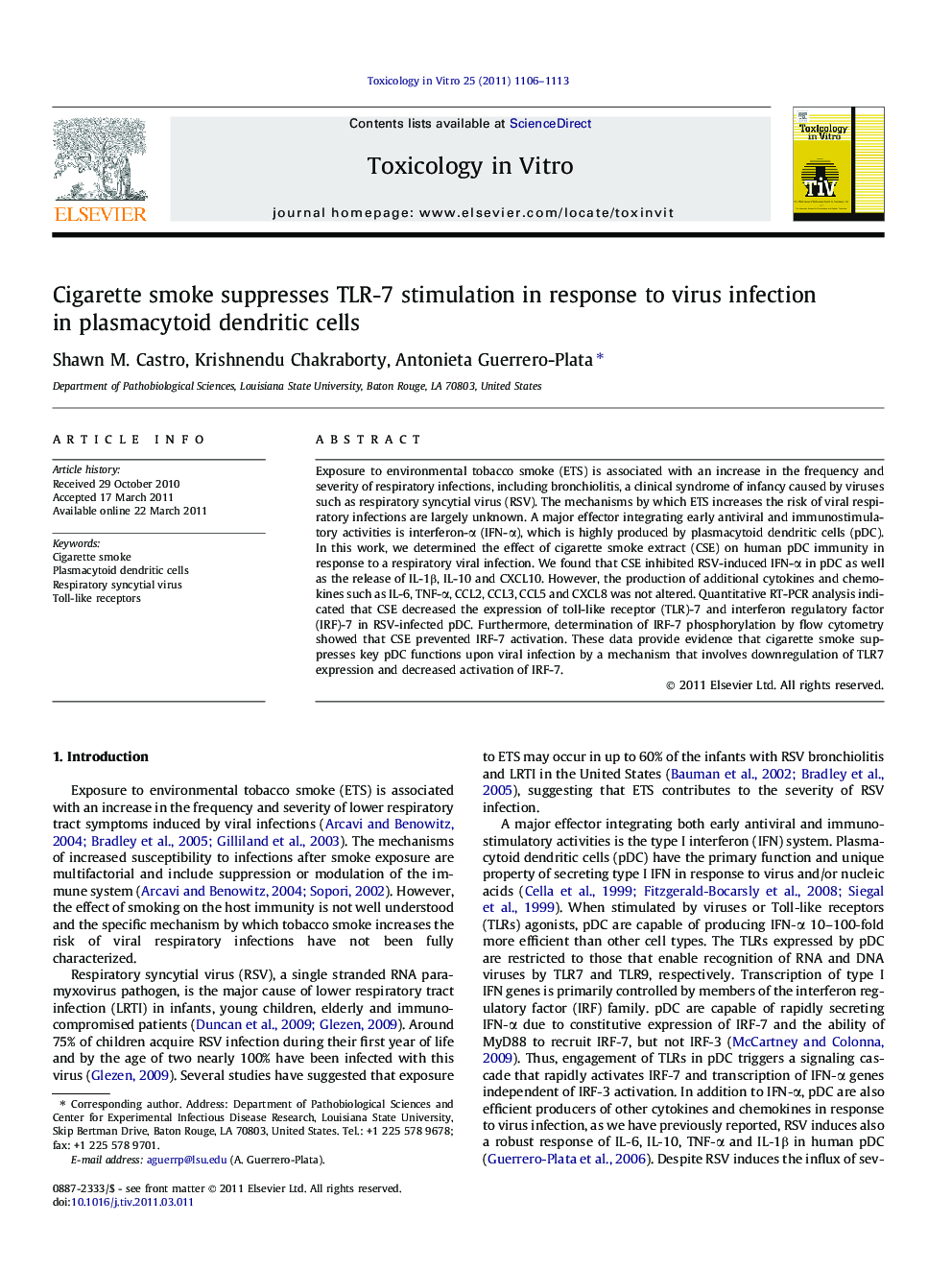| Article ID | Journal | Published Year | Pages | File Type |
|---|---|---|---|---|
| 2602621 | Toxicology in Vitro | 2011 | 8 Pages |
Exposure to environmental tobacco smoke (ETS) is associated with an increase in the frequency and severity of respiratory infections, including bronchiolitis, a clinical syndrome of infancy caused by viruses such as respiratory syncytial virus (RSV). The mechanisms by which ETS increases the risk of viral respiratory infections are largely unknown. A major effector integrating early antiviral and immunostimulatory activities is interferon-α (IFN-α), which is highly produced by plasmacytoid dendritic cells (pDC). In this work, we determined the effect of cigarette smoke extract (CSE) on human pDC immunity in response to a respiratory viral infection. We found that CSE inhibited RSV-induced IFN-α in pDC as well as the release of IL-1β, IL-10 and CXCL10. However, the production of additional cytokines and chemokines such as IL-6, TNF-α, CCL2, CCL3, CCL5 and CXCL8 was not altered. Quantitative RT-PCR analysis indicated that CSE decreased the expression of toll-like receptor (TLR)-7 and interferon regulatory factor (IRF)-7 in RSV-infected pDC. Furthermore, determination of IRF-7 phosphorylation by flow cytometry showed that CSE prevented IRF-7 activation. These data provide evidence that cigarette smoke suppresses key pDC functions upon viral infection by a mechanism that involves downregulation of TLR7 expression and decreased activation of IRF-7.
